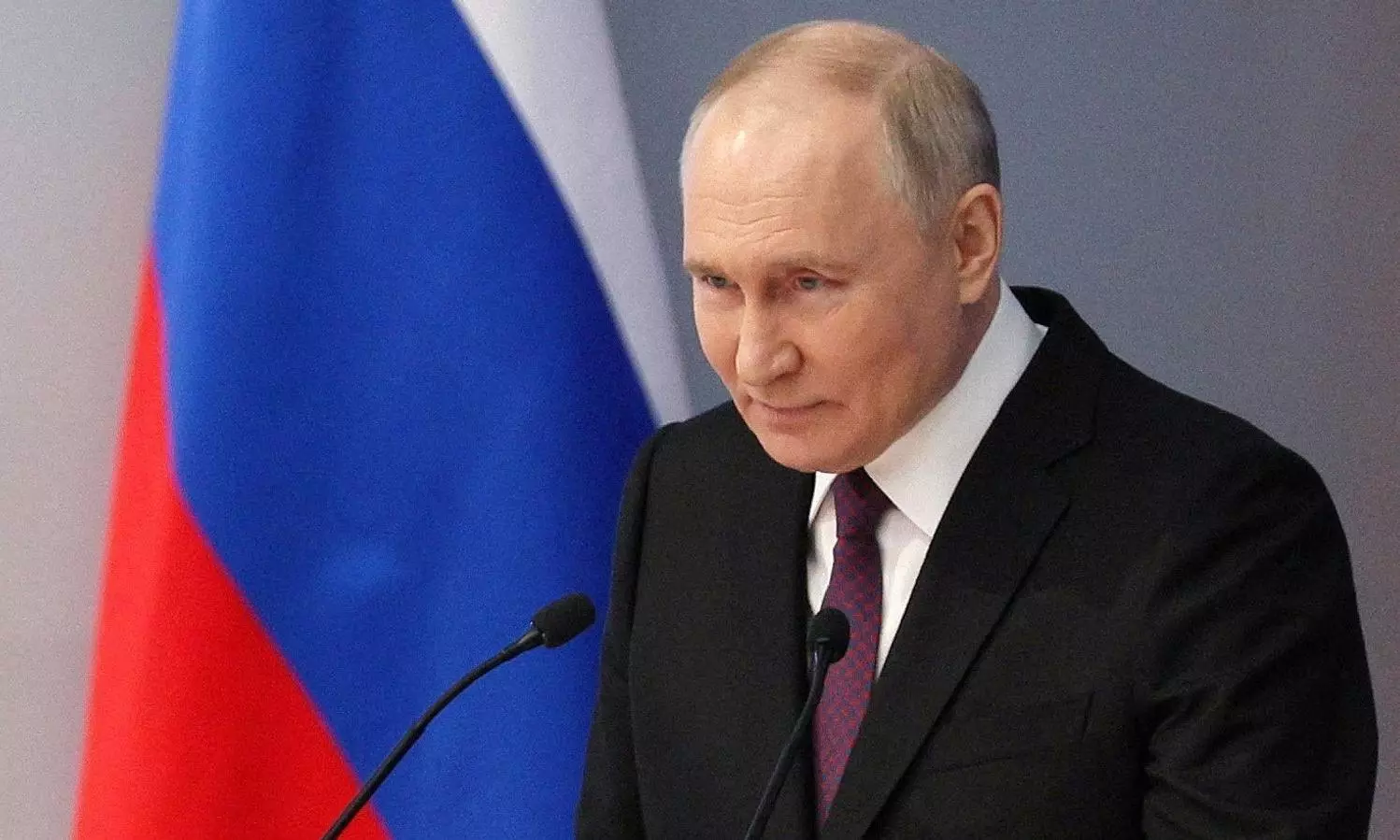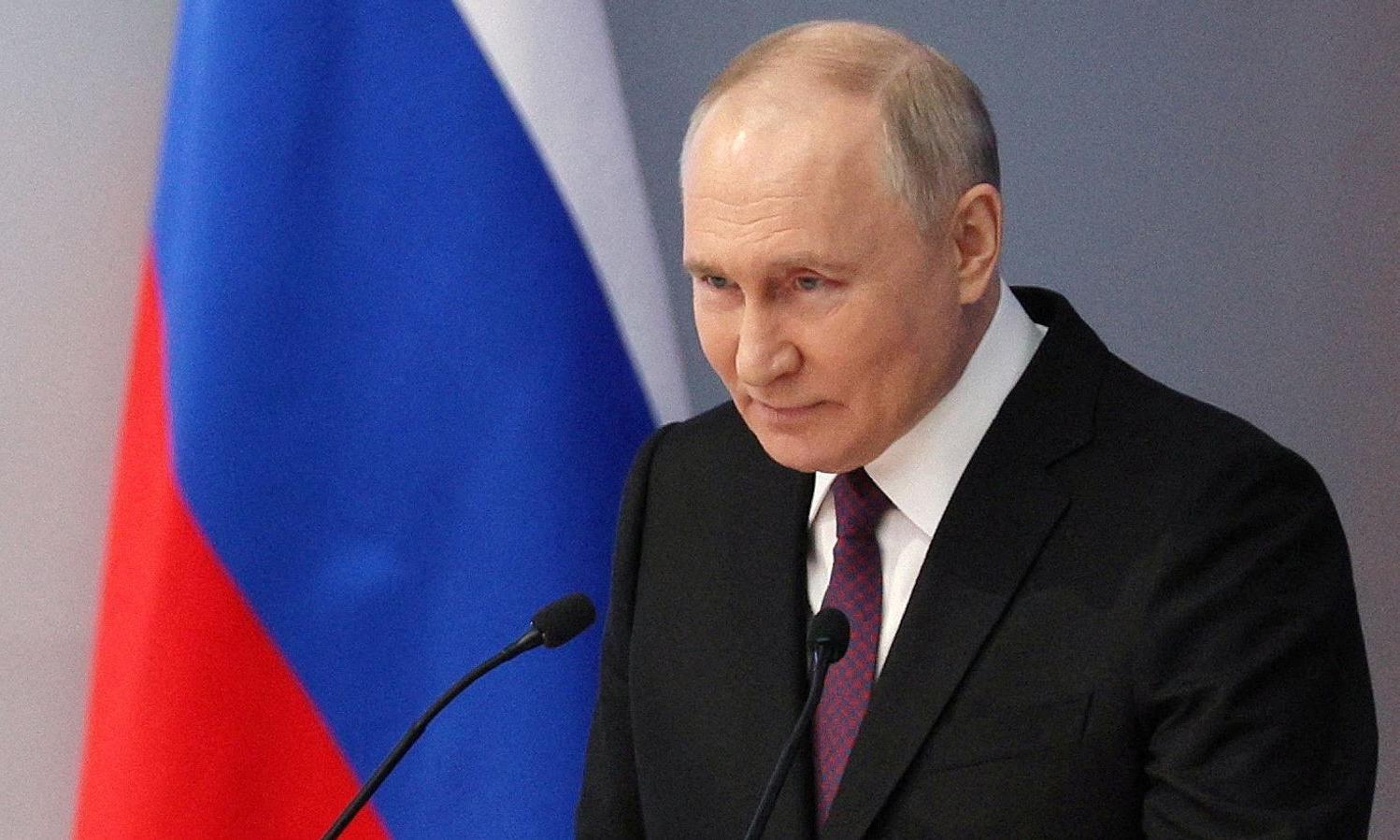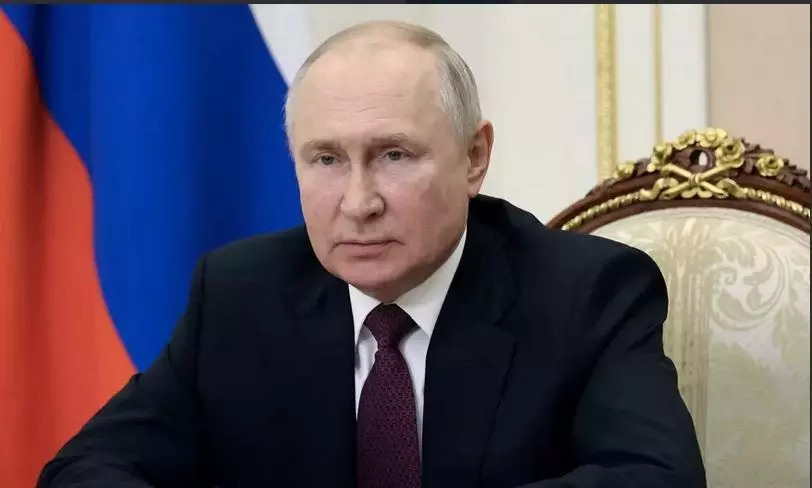
Who will succeed Putin?
text_fieldsAt 72, Putin is no spring chicken. He has just celebrated 25 years in office. But he cannot go on forever. He has twice had the constitution amended to prolong his grip on power. He is entitled to seek re-election in 2030 and win another 6-year term. That he would rig those to win is a foregone conclusion. He could remain en poste until 2042 when he will be 84!
There are persistent rumours that he has either cancer and/or Parkinson’s disease. His strange gait could be a symptom of latent Parkinson’s. He had a coughing fit on TV in 2022. These are edited images. If this is him at his best, what does he look like at his first? His puffy face may be due to the side effects of powerful medicines.
Even if Putin is terminally ill, he has the best medical care that money can buy. Those with terminal cancer can live up to 15 years with superb oncology. Even he does not die, he could be incapacitated by a stroke or a heart attack.
Who comes next?
In theory, Putin cannot pick his successor. The next President of the Russian Federation will be elected by the people. But elections in Russia are a charade. The full force of the state will be behind Putin’s chosen successor.
Putin has surrounded himself with men (and I do mean men) who grew up in his native city: St Petersburg. He trusts people who grew up in the city that is colloquially known as ‘Peter’.
The Russian cabinet is 24/25ths male. No woman has even been prime minister or deputy prime minister. Almost certainly a female will not be appointed. Russia has a very low incidence of women appointed to high office.
The bald-hairy rule means that a bald ruler of Russia is followed by a ruler with hair on his head who is in turn followed by a bald man who is then followed by a ruler with hair etc… As Putin is bald, he will be followed by a ruler with a full head of hair. This ‘rule’ is merely the observation that by coincidence the rulers have gone bald, hairy, bald, hairy for centuries.
Vladimir is well below average height. He is very sensitive on this issue. This may explain his macho posturing. His overcompensation has extended to killing hundreds of thousands of people. It makes him feel big. He prefers to appoint men who are shorter than him. But he cannot always find a suitable man who is smaller than him. Putin’s height is about 165 cm. The average in Russia is 175 cm.
Most members of his inner circle are ‘siloviki’ as in men who cut their teeth in the security services such as the FSB, SVR or GRU. From the security services, they move into other government ministries. Putin trusts the security services more than the armed forces. He is cognizant that a coup d’etat usually comes from the armed forces. Therefore, the FSB spies on the armed forces. Not many armed forces units are stationed close to the centre of Moscow.
There are 200 ethnic groups in Russia. 70% of Russian citizens are ethnically Russian. Putin will appoint someone who is an ethnic Russian. He disproportionately drafts ethnic minority men to get killed in Ukraine.
Dmitry Medvedev is the only person who has already succeeded V V Putin. Medvedev is a St Petersburg boy and at 59 younger than Putin. He is known for his obedience to Putin. Medvedev is also even shorter than Putin. He is 155 cm.
Medvedev is the chairman of the Security Council. This is a relatively unimportant post. He has made bloodcurdling denunciations of the West and threats since 2022. These are utterances so ghastly that Putin prefers not to have the indignity of saying these things himself.
In 2008, in accordance with the Russian Constitution, Putin stood down as president. He had served two terms of four years apiece. The constitution limited him to this. He then became Prime Minister whereas Medvedev served as president for a four-year term. Under the Medvedev Presidency, the constitution was altered to say that the two-term law only applied to consecutive terms. Therefore, Putin could come back for a 3rd and a 4th term because they were not consecutive to his 1st and 2nd terms.
There was a secret agreement that Medvedev would serve one term before Putin would resume the presidency. Medvedev would then return to being prime minister. There was a slight risk that Medvedev would break the deal. But he honoured it.
Sergei Naryshkin
He is the Director of the SVR (foreign intelligence). Naryshkin is one of the more cerebral members of the camarilla. He is also unusual inasmuch as he speaks English which he learnt in London in the 1970s. Days before the Ukraine War, Naryshkin was asked by Putin whether he agreed with the decision to recognise the ‘independence’ of Luhansk and Donetsk. These are two Russian-occupied regions of Ukraine. Naryshkin said that he did but his concurrence was not effusive enough and Putin publicly humiliated him.
Naryshkin does not have much of a following. He is 70 and it is unlikely that V V Putin will select him as his successor.
Alexander Bortnikov
He is the Director of the FSB (Domestic Intelligence). This was a post that Putin himself held during 1998-99 before becoming prime minister.
Bortnikov was born in a small town in Siberia but moved to St Petersburg (or Leningrad as it then was) in the 1960s. Because he was not born in Putin’s hometown, Bortnikov is not quite as high in Putin’s estimation as the others.
Among an array of charmless men, Bornitkov is egregiously lacking in affability. This is an advantage in that he never outshines Putin.
Bortnikov has been exposed as being guilty of large-scale corruption and speculation. Putin does not object to defalcation or bribe-taking. He himself has been doing this for over 30 years to the tune of tens of billions of USD. But he dislikes it when people are careless enough to get caught by the media.
Nikolai Patrushev
Here is a man who makes Putin look moderate. There is something to be said for physiognomy. Patrushev looks unhinged. He is a dim-witted bigot and a genuine paranoiac. He is Stalinist in his urge to oppress. Patrushev is ultra-aggressive. If he were president there would already have been a nuclear exchange. He believes the most crackpot conspiracy theories.
Nikolai Patrushev is Aide to the President. He previously held other senior posts such as Director of the FSB (domestic intelligence). He is distinctly lacking in intelligence himself!
At 73, Patrushev is even older than Putin. Therefore, it is improbable that he will be chosen to come after Putin. Putin has known Patrushev for 50 years. Trust is everything to Putin. He prizes obedience over competence. That is why witless automatons are often promoted and retain their positions even when they fail.
Patrushev’s son Dmitry is one of several Deputy Prime Ministers. Nikolai Patrushev is the only one of Putin’s inner circle, to have his offspring also serving in a high political office. There is a possibility that Putin might even select Dmitry Patrushev to follow after him. Putin attaches great importance to family. To be appointed to a senior position a person’s family must be free from any dissidents. Putin likes to promote people who have one or two generations of security service officers behind them. Patrushev’s father was in the navy just like Putin’s father.
Mikayil Mishustin
Mishustin is the Prime Minister. He was previously the head of the tax service. He was highly effective in making the super-rich pay more tax. Given the extraordinary corruptibility of the bureaucracy, this is a major accomplishment. VIPs would happily pay a USD 1 million dollar bribe to avoid a tax bill of USD 2 million.
Being shorter than Putin is a distinct advantage.
There are reasons why Mishustin will be appointed as Putin’s successor. He is a Muscovite; he is bald and he is half Jewish. Nor has he served in the security services.
Sergei Shoigu
Some people thought the former Defence Minister Sergei Shoigu, 69, is a possible successor. Shoigu is half ethnically Tuvan. This probably rules him out. Moreover, he was a disastrous defence minister. He failed to prepare the armed forces for the Ukraine War. The armed forces hugely underperformed. The Russian media boasted in 2022 that Russia would take Kyiv in 2 days. 3 years later they are nowhere near Kyiv.
There is a much younger man in the presidential administration whom some think Putin has groomed as a possible successor.
To name one’s successor is to enfeeble oneself. Much though Putin will want to anoint his successor he will not wish to do so prematurely precisely because it would start to make him irrelevant.
All the candidates thus far identified are inside Putin’s circle of trust. It is possible that a revolution will sweep aside Putin and his coterie. In that case, someone from outside the circle will become president. As Russia is a surveillance state and oppressing the people is Putin’s top priority it is thought unlikely that a popular revolution will topple him. It is more likely that if Putin does not die at his desk or retire, he will be forced out by a palace coup. This might not be violent. It might be like the 1964 coup d’etat when the Politburo (cabinet) told N S Khruschev that time was up, and he must retire immediately on the grounds of ill health. If the entire cabinet and top brass tell Putin to enjoy a comfortable retirement or else face a criminal trial, it is blatant which is more alluring.
A palace coup would likely bring to office one of the men mentioned hereinbefore. Putin believes he can trust them. Trustworthiness is a key characteristic of Putin when making his appointments.

























